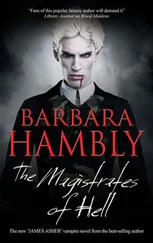Barbara Hambly - 02 Fever Season
Здесь есть возможность читать онлайн «Barbara Hambly - 02 Fever Season» весь текст электронной книги совершенно бесплатно (целиком полную версию без сокращений). В некоторых случаях можно слушать аудио, скачать через торрент в формате fb2 и присутствует краткое содержание. Жанр: mystery, на английском языке. Описание произведения, (предисловие) а так же отзывы посетителей доступны на портале библиотеки ЛибКат.
- Название:02 Fever Season
- Автор:
- Жанр:
- Год:неизвестен
- ISBN:нет данных
- Рейтинг книги:4 / 5. Голосов: 1
-
Избранное:Добавить в избранное
- Отзывы:
-
Ваша оценка:
- 80
- 1
- 2
- 3
- 4
- 5
02 Fever Season: краткое содержание, описание и аннотация
Предлагаем к чтению аннотацию, описание, краткое содержание или предисловие (зависит от того, что написал сам автор книги «02 Fever Season»). Если вы не нашли необходимую информацию о книге — напишите в комментариях, мы постараемся отыскать её.
02 Fever Season — читать онлайн бесплатно полную книгу (весь текст) целиком
Ниже представлен текст книги, разбитый по страницам. Система сохранения места последней прочитанной страницы, позволяет с удобством читать онлайн бесплатно книгу «02 Fever Season», без необходимости каждый раз заново искать на чём Вы остановились. Поставьте закладку, и сможете в любой момент перейти на страницу, на которой закончили чтение.
Интервал:
Закладка:
There was not so very much difference between Rue Royale and Gallatin Street. Only that Roarke's crimes had been, at least, comprehensible.
"So you're telling me the police are going to sit back and do nothing."
"I'm telling you," said Shaw softly, "that in ten years, this won't have happened." His eyes swept back to the tall house, the lace curtains moving in the windows, the walls like a self-enclosing fortress, only slightly streaked with smoke. "Nice lady like that? They didn't see nuthin'."
"Well, I sure saw somethin', me!" A heavyset countryman pushed close to Shaw. "Me, I been to the Cabildo. What you sayin', she gonna get away with what she done?"
"What you say?" Kentucky Williams jostled up behind the man. "That French cow-whore gonna get away with that?"
She had a voice like an iron gong, and the murmur rose around them, angry, disbelieving. Someone got a brick from the building site where January had blown up his bomb, and lobbed it through the window on the ground floor; someone else shrieked, "Monster! Murderess!" in English that grated like a saw.
Fists began to pound on the gate. Around the corner on Rue Royale others hammered at the door. More bricks were hurled at the house; there was a tinkling smash of glass.
"Now see what you done started?" murmured Shaw mildly and put a surprisingly gentle hand on January's arm to draw him back.
Hannibal asked, "I take it you're not on duty," and Shaw looked down at the fiddler in a kind of surprise.
"I been told off special by Chief Tremouille not to cross the Lalaurie threshold," he said. "So I guess I won't." A couple of Gallatin Street toughs and an Ohio boatman got a cypress beam from the construction and began to smash at the gates with it like a ram. The voice of the mob rose to an angry baying, French and English-"Like the howling of Irish wolves against the moon, " Hannibal murmured.
More bricks were thrown, and a dead rat from the gutter. Men appeared from the levee as if drawn by the noise or by the sudden, whiffed promise of loot.
Shaw checked the pistols at his belt. "I ain't seen the daughters all mornin'. I been watchin'. But I can't stand by if they offer her harm."
"Let them," said January coldly. His brother-in-law had lent him a jacket, too short in the sleeves, sticking to his back from the scabbed welts left by the whip, and had had to put it on him. He still could not move his arms. The mob thrust them back, pushing at the gate, and Shaw snaked his lean body forward, working his way to the front.
He was thus almost knocked to the banquette a moment later when the heavy black gates flew open.
Black horses reared and plunged in the archway, eyes rolling in terror; January saw Bastien on the box, wielding a whip in all directions. The mob fell back before the plunging hooves, maybe thinking the coachman was taking his moment to escape. Only when the carriage lunged forward did January see the woman inside, dark-veiled, calm, unbreakably perfect, gazing out over the heads of the rabble. Bastien cracked the whip again and the horses threw themselves forward. Someone shrieked a curse, and the mob surged after the carriage. But the horses were swift. The carriage rocked and swayed as it picked up speed, up Rue de l'Hopital to the Bayou Road, and out toward the lake.
Some of the mob ran after it, hurling bricks and cursing. The rest turned back, pouring through the open gates, into the wealthy house, and began to loot.
January felt a touch on his side. Looking down he saw that Rose had joined him. There was a crash as someone hurled the gold-veined vase down from the second-floor parlor, men scattering and laughing at the sound of the stone shattering. Someone else yelled in English, "Watch out below!" and the piano was thrust over the edge of the gallery, squashing like a melon as it hit the banquette. Bodies jostled January from all sides, crowding to be in at the carnival of destruction and theft.
January sighed, and with the effort of his lifetime put his arm around Rose's shoulders. She hesitated, then leaned very gently into his side.
"Let's go home." ? Did she or didn't she?
It's always difficult to write a fictional account of a historical crime, particularly in cases where the writer has to make a judgment about whether any crime was committed or not.
Newspaper accounts of events in New Orleans in the 1830s could be exaggerated, libelous, poisonous, selfserving, or misleading-all uniformly refused to acknowl edge epidemics of yellow fever until hundreds died, for instance-but the April 10, 1834, editions of the Gazette and (more significant to my mind) both the English and the French editions of the Bee contain accounts of the fire at the Lalaurie mansion, the discovery of the seven mutilated slaves in the attic, and the subsequent mobbing and sacking of the house. The Bee also contains the deposition of Judge Canonge, one of the most notable local jurists, as to the finding of the slaves. Barely two years after the events, Harriet Martineau, an Englishwoman passing through New Orleans, spoke to numerous eyewitnesses and attests that the debris from the Lalaurie house blocked the street for some time. George Washington Cable and his two assistants, and later Henry Castellanos-who was born and raised in New Orleans-had ample opportunity to speak to firsthand witnesses as well as to examine documents: neither of them appears to have had any doubts that the events did take place.
In 1934, one hundred years after the event, New Orleans journalist Meigs Frost printed a "vindication" of Marie Delphine de McCarty Blanque Lalaurie, claiming that the story could not be true on the grounds that the Lalaurie house on Rue Royale itself was clearly undamaged. Frost also claimed that the house dated from the late eighteenth century-which was completely untrue-and neglected to mention that the structure was substantially rebuilt by one Pierre Trastour in the late 1830s, so badly damaged had it been. Since Frost's account also contains a quaintly romantic, but provably untrue, legend about Madame Lalaurie as a young woman voyaging to Spain to plead for her first husband's life with the Queen of Spain (Don Ramon de Lopez y Angula was called back to "take his place at court" in full honor, but died in Havana). I found it difficult to place much credence in many of Frost's assertions. There are a number of possibilities and suppositions involved in the case, but in my judgment-and I thought long and hard about this before undertaking this project-the fact that Monsieur Montreuil next door had been done dirty by a member of Madame Lalaurie's family does not outweigh the fact of Judge Canonge's deposition or the fact that, when she and her husband fled New Orleans in 1834, Madame Lalaurie apparently made no attempt to deny the allegations made against her or to countersue Montreuil, Canonge, or anyone else. Most accounts state that thousands of people filed through the courtyard of the Cabildo that April afternoon in 1834 and saw not only the seven mutilated slaves, but implements of torture (unspecified) that "covered the top of a table." At least one account adds that two of the tortured slaves died from overeating immediately after their long period of starvation; others were so badly injured as to be pensioners of the city for the rest of their lives.
Following her escape from the house on Royal Street, Delphine Lalaurie crossed Lake Pontchartrain to Mandeville. There she stayed for some ten days, evidently hoping that the whole matter would blow over. When it did not, she and her husband signed over power of attorney to the husbands of her two married daughters (she had four in all) and took ship, first, it is said, for New York and then for Paris. There, some stories allege, Delphine Lalaurie lived out her days. One account says she died hunting boar in the Pyrenees.
Читать дальшеИнтервал:
Закладка:
Похожие книги на «02 Fever Season»
Представляем Вашему вниманию похожие книги на «02 Fever Season» списком для выбора. Мы отобрали схожую по названию и смыслу литературу в надежде предоставить читателям больше вариантов отыскать новые, интересные, ещё непрочитанные произведения.
Обсуждение, отзывы о книге «02 Fever Season» и просто собственные мнения читателей. Оставьте ваши комментарии, напишите, что Вы думаете о произведении, его смысле или главных героях. Укажите что конкретно понравилось, а что нет, и почему Вы так считаете.






